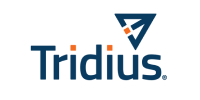Storytelling in Marketing: Why It Works and How to Do It Right
By EmoryDay
August 22, 2025
9 Minute Read

In today’s competitive digital landscape, facts and stats alone rarely win customers. If you want people to remember your brand, have positive feelings about it, and ultimately take action by becoming a customer—your marketing campaigns need to tell a story.
Storytelling in marketing is more than just a trend. It’s a proven strategy that humanizes your brand, builds emotional connections, and makes your messaging more memorable.
Whether you’re a startup or an established company, incorporating storytelling into your marketing can elevate your brand identity, drive deeper engagement, and increase conversions.
Let’s explore why storytelling works, types of brand storytelling, and storytelling tips.
What is Storytelling in Marketing?
Mural defines storytelling in marketing as the “strategic use of narrative elements to communicate your brand's message, values, and offerings in a way that emotionally connects with your audience”
Storytelling in marketing is often also referred to as “brand storytelling.” And, Digital Marketing Institute defines brand storytelling as the “strategic practice of using narrative techniques to communicate your brand's values, mission, and personality across digital channels to create emotional connections with audiences.”
No matter which term you use—storytelling in marketing or brand storytelling—the concept is the same: weaving compelling narratives into your marketing instead of simply listing product features or service benefits. The goal is to create stories that genuinely resonate with your audience, spark an emotional connection, and make your brand unforgettable.
Why Brand Storytelling is Effective
Like we said above, storytelling in marketing is a proven strategy. Here’s all the reasons why it works:
1. Emotional Connection
Humans are wired to respond to stories. According to Primitive, “the human brain is wired to crave, understand, and remember stories better than facts or data alone.”
Neuroscience shows that stories trigger the release of oxytocin—a hormone that fosters “empathy, trust, and emotional bonding.”
When a customer resonates with your narrative or feels moved by it, they’re more likely to connect with your brand on a personal level. That emotional connection can strongly influence their purchasing decisions.
2. Memorability and Brand Recognition
People are far more likely to remember a compelling brand story than a bullet-point list of product benefits. This strengthens brand recognition and keeps your business top-of-mind when consumers are ready to buy.
3. Standing Out
When a market is saturated, products can easily start to feel like they are all the same. A unique marketing story sets your brand apart and allows you to stand out from your competitors.
4. Increased Trust
Along the same lines of storytelling allowing your audience to form an emotional connection to your brand, it also helps people build trust with your company. According to Mural, “81% of consumers say they need to be able to trust the brand in order to buy from them — and telling your brand story increases trust.”
5. Increased Engagement
A well-told story can draw people in and keep them interested. It invites participation—through comments, shares, likes, or user-generated content.
According to Mural, companies that tell stories through their marketing “generate 300% more engagement than those with straightforward product pitches.”
Essentially, when your audience can connect to your story, they’re more inclined to interact and spread the word about your brand’s awesomeness.
Storytelling in Marketing
Why it works and how to do it right.

Types of Brand Storytelling
There are a few different ways to pull off storytelling in marketing.
1. A Brand’s Story
Sharing your brand’s story through your marketing is a great way to humanize your brand.
According to The Good Marketer, a brand’s story “delves into the company’s history—its mission and core values—helping to humanise the brand and create a sense of purpose.”
You can showcase how your company began as well as your journey to the present.
2. Customer Stories
Customers can offer real-life examples of how your products and/or services have improved their lives.
The Good Marketer suggests that customer stories, like testimonials, case studies, and user-generated content "create invaluable social proof and trust and help potential customers relate by showing how others have benefited from the product or service.”
3. Product Stories
The Good Marketer explains product stories are focused on the “practical benefits of a company’s offering.” They can demonstrate how these products and services help customers, improve their lives, etc.
4. Employee Stories
The Good Marketer suggests that employee stories are great marketing tools because they allow customers to see the people “behind the brand and allow them to tell the story of the team, company culture, and values.”
Employee stories really personalize a brand and show how dedicated and passionate these employees are to their company.
Real-World Examples of Brand Storytelling
Airbnb
Airbnb does a great job of leveraging User-Generated Content (UGC) to personalize their brand. They highlight real hosts and travelers and tell personal stories of connection, community, and cultural discovery.
For instance, their “Made Possible by Hosts” campaign features guests sharing meaningful moments. These narratives shift the focus from simply booking a place to stay to enjoying and living an amazing travel experience. By allowing users to be the storytellers, Airbnb builds authenticity and trust while reinforcing its mission: “To create a world where anyone can belong anywhere.”
Nike
Nike is a fantastic example of a company using narrative-drive ads. According to Digital Marketing Institute, their storytelling often revolves around “overcoming obstacles,” chasing dreams, and defying expectations. Their campaigns often follow a classic storytelling arc—introducing a relatable or aspirational character, presenting a challenge or obstacle, and then showing a moment of triumph.
Duolingo
Duolingo uses various social media platforms to release ongoing story arcs that keep followers coming back for more. They have turned their green owl mascot, Duo, into a character with its own personality, quirks, and running jokes. By treating Duo like a main character in an ongoing sitcom, Duolingo has built a loyal fan base that keeps tuning in to see what Duo is up to next.
Brand Storytelling Tips
1. Know Your Audience
Start by understanding what your audience cares about. What are their hopes, fears, challenges, and values? Tailoring your story to reflect these elements increases the chance it will resonate and inspire action.
2. Be Authentic
Consumers are quick to detect inauthenticity. So, keep these stories real. Make sure they are true and are authentic to your brand.
3. Use High-Quality Visuals and Sounds
Storytelling through video, audio, and imagery, enhances the emotional impact and helps your audience connect more. Just think about how visuals or music can trigger a mood faster than content alone.
4. Encourage Participation
Invite your customers to share their own stories. Highlight their testimonials or experiences. Not only does this boost credibility, but it also builds community around your brand. And, don’t forget to get your employees involved, too.
5. Test and Adapt
Use A/B testing and analytics to see which stories perform best. Track metrics, like engagement rates, shares, time spent on content, and conversions. And, don’t be afraid to refine and adapt your storytelling based on the data.
EmoryDay Can Help Your Brand’s Storytelling Efforts
Storytelling is a strategic marketing tool that turns customers into fans and even advocates for your brand.
At EmoryDay, we help brands tell stories that connect, convert, and create lasting impact.
Ready to make your messages unforgettable? Let us help you bring your brand’s storytelling to life.
If you have any questions about our digital marketing services, just fill out our contact form or give us a call at (888)494-3810.
Resources
https://digitalmarketinginstitute.com/blog/brand-storytelling-in-the-digital-age
https://www.leadwithprimitive.com/blog/the-power-of-storytelling-in-marketing-and-branding
https://www.mural.co/blog/storytelling-marketing
https://thegoodmarketer.co.uk/blog/storytelling-in-marketing-and-how-it-works/
Frequently Asked Questions
Get Started with EmoryDay
Proven Lead Generation – We guarantee to double your phone calls and leads within 90 days, or your money back!* Our expert team drives consistent, scalable growth through a full-spectrum digital marketing strategy, including targeted search, social media, PPC, and conversion-optimized campaigns, delivering high-quality leads so you can focus on closing deals.
No contracts, no long-term commitments—just real results.
Real Results
We get the Customers Your Business Deserves
- All
- Leads
- Revenue
- Sold Businesses
Fully Booked Schedules week after week for the past year.

Successfully Sold Business after 3 years with EmoryDay!

83% Increase in quarterly leads over prior year

Successfully Sold Business after 4.5 years with EmoryDay!

Successfully Sold Business after only 1.3 months with EmoryDay!

Successfully Sold Business after 3.5 years with EmoryDay!

Successfully Sold Business after 1.8 years with EmoryDay!

50% Increase in revenue in the last year

Successfully Sold Business after 13 years with EmoryDay!

5x Increase in company size

Successfully Sold Business after 3 years with EmoryDay!

Successfully Sold Business after 4 years with EmoryDay!

Successfully Sold Business after only 7 months with EmoryDay!

81 New Patients in first 2 months – with a 12% Conversion Rate

150% Increase in phone calls with targeted local search

Three consecutive years of 50%+ Annual Growth in qualified leads

Successfully Sold Business after 6.5 years with EmoryDay!

400% Increase in monthly leads

Successfully Sold Business after 3 years with EmoryDay!

200% increase in monthly sales for an underselling product.

15x Increase in scheduled consultations in 4 weeks

Successfully Sold Business after 5.5 years with EmoryDay!

Successfully Sold Business after only 11 months with EmoryDay!

10x Increase in qualified leads with EmoryDay

Successfully Sold Business after 4 years with EmoryDay!

$25k Increase in monthly revenue in just three months

50% Increase in sales growth in 6 months

2,687 Quote Request in 4 months from Facebook

5x Increase in qualified leads from advertising in just three months

3.5x Increase in qualified sales leads with a 40% decrease in sales lead costs

7 position increase in search ranking over 6 months

400% Increase in conversion in under a year.

2.5x Increase in search leads after campaign optimization

80% Decrease in ad costs with a 2x Increase in conversions

200 leads with 40 new life insurance agents in 30 days!

146% Increase in requests for business valuations last year while lowering costs by 40%.

$10k increase in monthly sales with e-commerce

19 years with EmoryDay and still increasing revenues

1200% Growth from 1 location to 12 locations!

Successfully Sold Business after 3 years with EmoryDay!

$1.26M sales growth for local plumbing company in one year!

Recent record month with $366K value in orders

Successfully Sold Business after 1.8 years with EmoryDay!

50% Increase in service calls

300 Additional Orders in one week from email marketing

Successfully Sold Business after 1.5 years with EmoryDay!

6x Increase in local search and map traffic in 6 months.

Successfully Sold Business after 7 years with EmoryDay!

2.8x Increase in leads from the month 1 to Month 2
